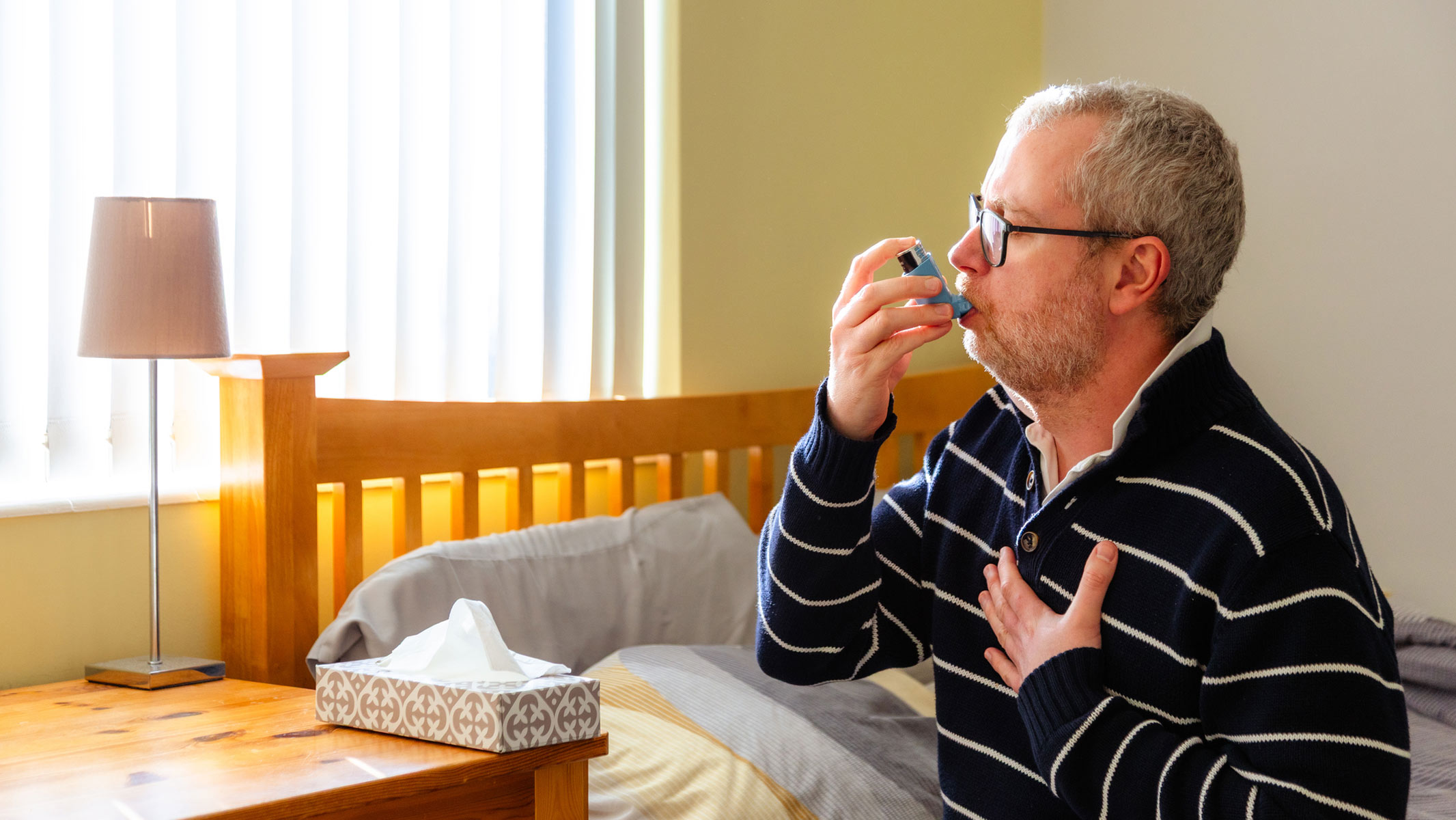
Asthma affects approximately 28 million people in the U.S., according to the Asthma and Allergy Foundation of America. The chronic condition causes inflammation in the airways that leads to the lungs, causing shortness of breath, chest tightness or pain, and wheezing. People with asthma can experience particular difficulty breathing when they simultaneously have respiratory infections like the common cold or the flu.
There is no cure for asthma, but people can manage the condition by taking medications and avoiding asthma triggers. With the latter goal in mind, some people may use air purifiers to help get rid of irritating pollutants that can set off their symptoms.
But do air purifiers actually help with asthma? The answer is not straightforward.
"Air purifiers can help with asthma by improving indoor air quality and reducing exposure to common asthma triggers," Dr. Angela Hogan, the chair of the American College of Allergy, Asthma and Immunology Asthma Committee, told Live Science by email. "For individuals allergic to pets, mold, or pollen, reducing these airborne exposures can decrease airway inflammation and improve lung function.".
"However," she added, "it is important to note that the exact extent of improvement is hard to quantify due to the simultaneous influence of many factors." No single environmental control measure can resolve a person's asthma symptoms all on its own.
An asthma attack — a sudden worsening of the symptoms in which the airways become inflamed and swell up to the point that a person cannot breathe — can be triggered by airborne allergens, such as grass pollen, mold spores and pet dander. An air purifier can rid the air of these kinds of particles. But air purification likely can't rid the environment of every possible trigger, according to a 2023 review published in the journal Frontiers in Allergy.
"For example, air purifiers are less effective if the allergen reservoirs remain [in the environment], such as on pets, old carpets and upholstered furniture," Hogan said. The devices are only removing particles from the air, but their original sources may linger elsewhere.
Nonetheless, evidence does suggest that air purifiers equipped with High-Efficiency Particulate Air (HEPA) filters can bring at least some relief to people with asthma. HEPA filters are designed to trap at least 99.97% of the airborne particles that measure as small as 0.3 microns, Enesta Jones, a spokesperson for the U.S. Environmental Protection Agency (EPA), told Live Science. "Multiple studies with portable HEPA air cleaners have found improvements in one or more allergy and/or asthma symptom(s)," she said.
For example, HEPA air cleaners in school classrooms were found to improve lung function in some students with asthma, according to a 2023 study published in the Journal of Asthma. Scientists randomly selected students’ classrooms to receive either an air purifier equipped with a HEPA filter or a "sham" unit without a HEPA filter. After a year, they measured each student’s FEV1% (a metric used to assess how much and how quickly air can be exhaled) and found that this metric increased by an average of 4.22% for students exposed to HEPA filtration compared to students who did not receive the intervention.
The good news is that many of the best air purifiers on the market are equipped with HEPA filters.
It is worth noting, though, that certain air purifiers may actually release chemicals that can aggravate the symptoms of asthma. The EPA recommends avoiding any devices that produce ozone, as this gas can irritate the lungs, as well as cause other knock-on health effects. Devices that may release ozone include air cleaners that contain electrostatic precipitators, ionizers, plasma, or ultraviolet lights without adequate lamp coatings, the EPA cautions.
This article is for informational purposes only and is not meant to offer medical advice.







